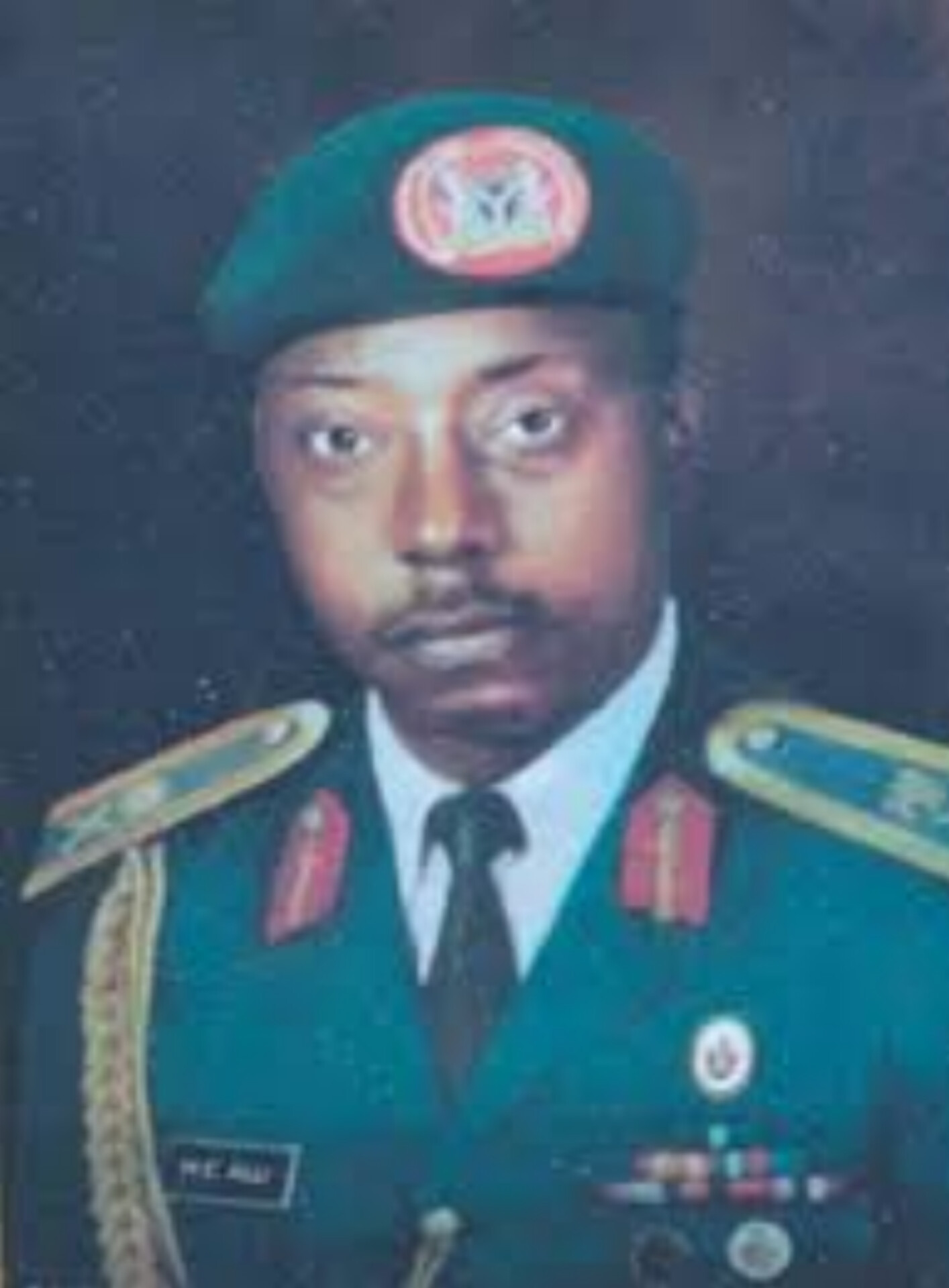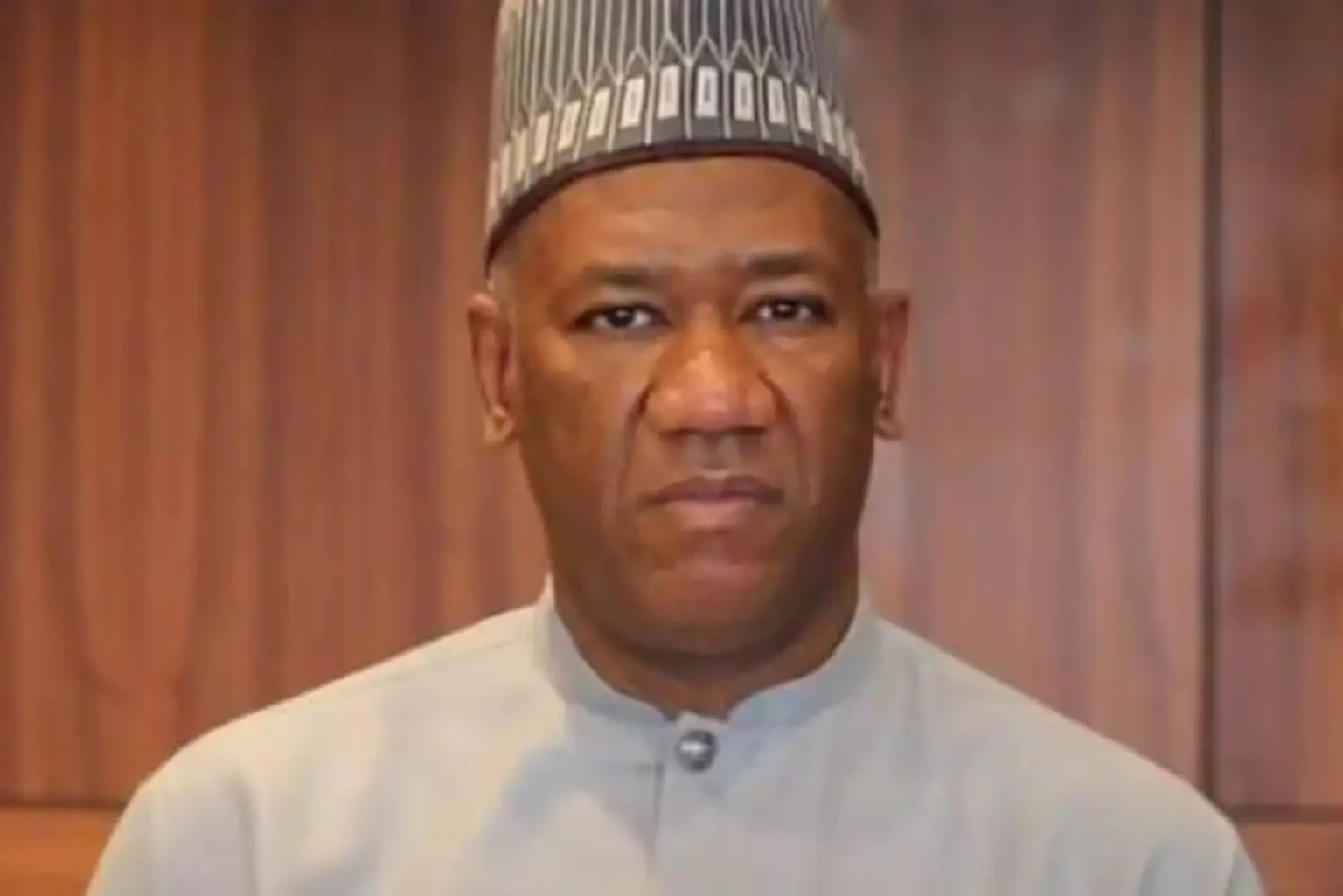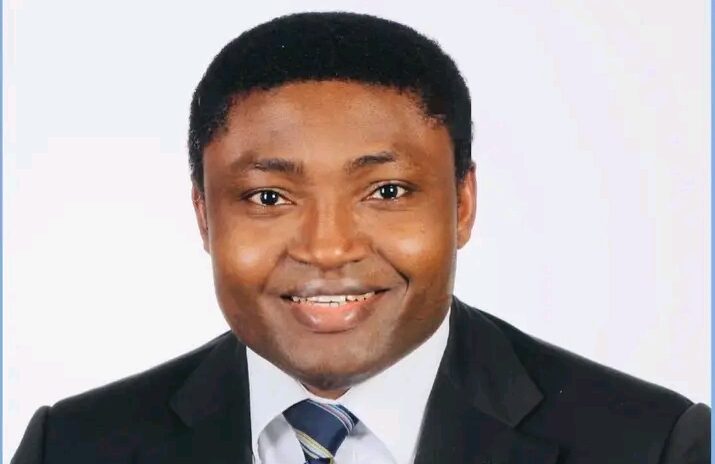News
Rare, radical battler takes a bow, MC ALLI: 1944-2023

By Tunde Olusunle
The uncanny combination of his names which featured Christian and Muslim epithets was sufficiently intriguing to tickle my curiosity and inquisitiveness. He had become a notable public figure back in 1986 when Nigeria’s military President, Ibrahim Badamasi Babangida appointed him military Governor of the old Plateau State. Seven years thereafter he was catapulted to the position of Chief of Army Staff, (COAS) under the regime of Sani Abacha. Abacha had upended the Interim National Government, (ING), hurriedly cobbled together by the departing Babangida in August 1993, as he bowed to popular pressure to disengage. This clamour became more rancorous following Babangida’s mismanagement of the “June 12, 1993 election,” which was patently won by the charismatic multibillionaire business mogul, Moshood Kashimawo Olawale Abiola, but summarily annulled by Babangida.
In a military dispensation, the office of COAS is nominally and politically the Number Four position. There is a “Chief of Staff,” Supreme Headquarters,” (CSSH), or a “Chief of General Staff, (CGS),” in the Number Two placement. There is also a Chief of Defence Staff, (CDS), who often doubled as the coordinating hub of the three military services, the army, navy and airforce. He was therefore labelled “Chairman, Joint Chiefs of Staff, (CJCS).” He was Number Three in the political hierarchy of a military government. Professionally and operationally, however, the position of COAS was the de facto Number Two. He superintended over the army, easily the largest defence and fighting arm of the military complex. He reported directly to the Head of State, who was concurrently the Commander-in-Chief of the Armed Forces.
Historically, the COAS was always also a Member of the nation’s highest policy and decision-making organ in a military government. The body has been variously christened over decades of military rulership. It was at some point the “Supreme Military Council,” (SMC), and later the “Armed Forces Ruling Council,” (AFRC). Abacha opted for the designation of the body as “Provisional Ruling Council,” (PRC). The COAS is a highly regarded and influential office popularised in the past by military greats like Yakubu Jack Gowon, Hassan Usman Katsina, Theophilus Yakubu Danjuma, Alani Ipoola Akinrinade, Babangida, Abacha himself and Aliyu Mohammed Gusau.
Abacha named Mohammed Christopher Alli, then a Brigadier-General his COAS upon his disbandment of the ING in November 1993 and simultaneously elevated him a Major General. Alli was a battle-tested, war-toughened officer who fought in the fiesty Nigerian civil war between 1967 and 1970, and commanded a battalion even as a fresh joiner into the military. Alli had also served as Nigeria’s Defence Attache to Zimbabwe; Director of Military Intelligence, (DMI) and General Officer Commanding, (GOC), of One Mechanised Division of the Nigerian Army, headquartered in Kaduna. Alli was therefore very well groomed for his new job.
I was on the Editorial Board of the *Daily Times* at the time Alli was appointed COAS. I had the added responsibility of maintaining a weekly interview page which I christened “Dialogue this Week.” I had the latitude to interview reputable Nigerians across the broad spectrum of the society on topical issues. The simple mention of the name of the organisation, opened doors. Tunji Oseni, who succeeded the suave and debonair Yemi Ogunbiyi. The latter had launched a massive rebuild of the Daily Times behemoth following his appointment as Managing Director in 1989. Oseni worked hard to keep apace with Ogunbiyi’s multi-pronged legacies. I therefore wrote an official letter to Alli requesting to meet and interview him. Alli replied my correspondence. It was a surprise somewhat knowing how insular the military could be. His military assistant at the time, I.I. Hassan a Lieutenant Colonel, acknowledged my letter and proposed a date for my visit early in the month of February 1994.
*MC ALLI* beamed from the name tag on the breast of his work gear when I came face to face with him. My preliminary impression of him was that he was urbane and personable. His father, he told me in answer to my preliminary banter, was a Muslim, his mother was a Christian. His bouquet of names which are popular with both religions therefore arose from this background, that intriguing mix of “Mohammed” and “Chris” (abbreviated from the original version of the name, Christopher). He displayed notable wit and diplomatese for a steely, rugged soldier. I congratulated him once again on his appointment. “You want an interview,” he asked as he proferred his hand for a handshake and waved me to the visitor’s seat. I responded in the affirmative.
“I’m still taking stock of this office as you probably can see,” he began. “Much as I want to talk to you, I wouldn’t want to respond to some of your questions with a “no comment” reply.” Continuing, Alli said: “What you can do for me is to exercise some patience. There will be a lot to talk about the army just as there must be a lot to talk about *The Times!* Just wish me well as I lead and rebuild the army but rest assured I will talk to you.” Alli the rare breed, cerebral combatant tactically wriggled out of the dragnet of my proposed inquiries. He did speak about sundry issues concerning his background and career though. Arising from that encounter, my article was titled “Mohammed Chris Alli: Portrait of a Soldier-Patriot” and published in the *Daily Times* of Saturday February 5, 1994.
Months after that encounter and barely one year in office, Alli was removed by Abacha and replaced by Alwali Jauji Kazir, another army General in August 1994. He was reported to have regularly nudged Abacha on the imperative for the revalidation of the “June 12, 1993” election which was clearly won by MKO Abiola. He was said to have subtly, albeit stridently pushed for the military to return to the barracks to enable democracy thrive. The totalitarian, feared and dreaded Abacha had aided the ascent of some of his military predecessors to political limelight and long coveted the highest office in the land himself. He was indeed nicknamed the *Khalifa,* (meaning the successor) on the sidelines of the Babangida regime. He wouldn’t brook any suggestion to terminate his rulership under whatever description. Alli was summarily retired on the same day with Allison Amaechina Madueke, a Rear Admiral and Chief of Naval Staff, (CNS), who was also progressively-inclined like MC Alli.
After his compulsory retirement, Alli tried his hands on entrepreneurship. He established a woven sacks factory and a gas-filling plant side-by-side, in Lokoja the capital of his state of origin, Kogi State. I remember he named the latter *Mohca Gas Ltd,* a play on letters from his names. He was thus a regular caller at the historic confluence of the Niger and Benue rivers, where he had a home. Coincidentally, I had moved over to Lokoja from Lagos on a second spell, as an appointee of the sitting military administrator this time around. Paul Uzoanya Ndimele Omeruo an army Colonel, appointed me his Chief Press Secretary and Director of Press Affairs, beginning from May 1995. With Alli’s more frequent visits to Lokoja to tend his teething investments, we continued to see each other more frequently. I was assured a few chilled drinks whenever I stopped by to say “hello.” He famously regaled me with stories of his penchant for radical dissent against the establishment even as a young secondary school student. He would typically tell me: “… What the school authorities tried to do on that occasion ran counter to my ideals and principles. I rebelled.”
Nigeria’s former military Head of State and democratically elected President, Olusegun Obasanjo, tapped Alli in 2004 to serve as Administrator in the perennially acrimonious Plateau State, where Alli was once military Governor. Under the leadership of the democratically elected Governor of the state, Joshua Dariye, sectarian violence had reportedly claimed over 50,000 lives. This compelled Obasanjo to declare emergency rule, after suspending the Governor and the State Assembly. Within Alli’s six month service which ended in November 2004, he developed the “Plateau Peace Programme” in collaboration with religious, ethnic and community leadership. He also offered amnesty and fiscal rewards to holders of weapons who turned them in. Alli’s measures considerably helped in calming down the situation in the state.
Mohammed Christopher Alli was born on Christmas day in 1944 in Kotonkarfe, headquarters of present day Kotonkarfe local government area in Kogi State to Mallam Alli Adakwo Alaburah and Mama Rebecca Ojumori Nanashe Abayomi. He attended Trinity High School, Oguta, Imo State, and the Metropolitan College, Onitsha, Anambra State. He actually had a tinge of *Igbo* accent, a language he spoke fluently. He demonstrated early intellectual disposition, posting a well-earned Division One performance in the very competitive West African School Certificate Examination, (WASCE), in 1962.
He had his earliest military education at Fhiegehorst Isaufboren, West Germany between 1966 and 1967, and the Nigerian Defence Academy, (NDA) in 1967, where Abdulsalami Abubakar who later became Nigeria’s Head of State was his course mate. Alli attended the “Platoon Commander’s” course in Westminster in the United Kingdom in 1971, and the “Unit Commander’s” training in Pakistan in 1975. He was at the Command and Staff College, Jaji, Kaduna State, a tri-service military training institution, in 1978 and the National Defence College, (NDC), India in 1990. He obtained a masters from the University of Allahabad, Pakistan, to understanding his deep-seated inclination towards scholarship.
Alli began his working career as a laboratory assistant with “Kirkpatrick and Partners” in Kaduna, after a failed attempt to secure a job at Eastern Nigerian Broadcasting Corporation in Enugu. He also served as “archive assistant” in the Kaduna-based National Archives. His attempt to enlist in the police was opposed by his father, even as he secured an appointment as a non-commissioned officer in the fledgling Nigerian Airforce. Fortune smiled on Alli in 1967 when the civil war began. He applied for a short service commission in the army and was admitted. Thus began his odyssey in the Nigerian Army. He authored a very courageous and profound book of over 400 pages titled *The Federal Republic of Nigerian Army: The Seige of a Nation,* published in 2001. He was also member of the Editorial Board of the reputable *The Guardian* tabloid which flaunts itself as the “flagship of Nigerian newspaper journalism.”
Years after he hedged from obliging me an interview, Alli became an interviewer’s delight. He was famous for his engaging frankness, broad perspectives and refreshing profundity on a wide canvas of issues. He sadly passed at a military hospital in Lagos in the morning of Sunday November 19, 2023, a little over a month to his 79th birthday. Encomiums have continued to pour from across the world. The Nigerian Army has declared a three-day mourning period in his honour during which all flags in all Nigerian Army formations are to fly at half-mast. Alli’s uncommon insights in the variform military, security, intelligence and administrative sectors, will be sorely missed. So will be his unwavering patriotism, untiring nationalism and undying commitment to the growth and progress of Nigeria, a country he was willing to die for.
Tunde Olusunle, PhD, poet, journalist, scholar and author is a Fellow of the Association of Nigerian Authors, (FANA)
News
Obidient Movement Denounces Fake Social Media Posts Targeting Senator Datti-Baba Ahmed

The Obidient Movement, led by Dr. Yunusa Tanko, has issued a press statement condemning the circulation of false social media posts attributed to Senator Datti-Baba Ahmed. The fabricated posts, which have gone viral, are described as part of a deliberate smear campaign aimed at damaging the Senator’s reputation.
The movement clarified that Senator Datti-Baba Ahmed does not operate any social media accounts, making all attributed posts entirely baseless. During a recent press conference, the Senator unequivocally dissociated himself from these claims and urged the public to disregard them.
“This is a targeted attempt to tarnish the Senator’s image and credibility,” Dr. Tanko stated.
The Obidient Movement has called on its supporters and the public to remain vigilant and proactive in addressing the issue. They urged people to ignore, counter, and report the false posts whenever they appear.
The statement concluded with an appeal for continued support and collaboration in combating misinformation, reinforcing the movement’s commitment to truth and integrity.
News
Senate Approves President Tinubu’s N1.767 Trillion Loan Request

The Senate has granted approval for a $2.09 billion (N1.767 trillion) loan requested by President Bola Tinubu to address the N9.7 trillion deficit in the N28.7 trillion 2024 budget. The decision was made during Thursday’s plenary, just 48 hours after the request was submitted to the National Assembly.
President Tinubu, in letters to both chambers of the legislature earlier this week, highlighted the importance of the loan for financing key projects and programs critical to national development.
Following the request, the Senate assigned its Committee on Local and Foreign Debts, led by Senator Aliyu Wammako (APC, Sokoto North), to review the proposal. Presenting the committee’s report, Senator Wammako described the loan as vital for implementing the Debt Management Strategy, reducing borrowing costs, extending debt maturity, and bolstering Nigeria’s external reserves.
The committee recommended raising the loan through Eurobonds or similar international financing instruments, subject to market conditions. It also suggested that any excess funds from exchange rate adjustments be directed toward capital projects in 2024 to support infrastructure and economic growth.
The Senate approved the loan unanimously, with no objections raised during deliberations. Deputy Senate President Jibrin Barau, who presided over the session, commended the Wammako-led committee for its swift and thorough handling of the proposal.
This loan approval is part of the government’s broader strategy to bridge fiscal gaps while focusing on developmental priorities and economic stability.
News
Finland Detains Pro-Biafra Agitator Simon Ekpa on Terrorism Charges

Simon Ekpa, a Finland-based pro-Biafra agitator, has been arrested and detained by the Päijät-Häme District Court in Finland on charges of inciting public crimes with terrorist intent.
The alleged offence reportedly occurred in Lahti on August 23, 2021. Finnish authorities apprehended Ekpa on Monday, November 19, marking another chapter in his history of legal confrontations.
A source confirmed Ekpa’s arrest, noting, “He was arrested three days ago. But this is not the first time. He will likely be questioned and released soon.” Ekpa was previously detained in 2023 on suspicion of fundraising fraud but was released the same evening.
The Finnish National Bureau of Investigation (NBI) has also requested the detention of four additional suspects in connection with terrorism-related charges.
Ekpa has gained notoriety for his leadership of a Nigerian separatist group advocating for an independent Biafran state in southeastern Nigeria. Finnish authorities allege that he used social media platforms to coordinate actions that resulted in violence against civilians and authorities in Nigeria.
Detective Chief Inspector Otto Hiltunen of the NBI stated that the investigation focuses on a Finnish citizen of Nigerian descent, born in the 1980s, suspected of public incitement to crimes with terrorist intent.
Meanwhile, the Nigerian government has continued to engage the Finnish government through the European Union (EU) to extradite Ekpa. In August, Nigeria’s Defence Headquarters emphasized the dual approach of diplomatic engagement and sustained military operations against the Indigenous People of Biafra (IPOB) and its armed wing, the Eastern Security Network (ESN).
Director of Defence Media Operations, Major General Edward Buba, reiterated the government’s resolve, saying, “The FG would respond appropriately to the Finnish Government through the EU. On the part of the military, troops would sustain operations against IPOB/ESN.”
Ekpa, who has represented Finland’s National Coalition Party (NCP) in local government, currently serves on Lahti’s public transport committee. Finnish authorities continue to investigate his activities, emphasizing the potential connection between his leadership role in the separatist movement and violent actions in Nigeria.
-

 Crime1 year ago
Crime1 year agoPolice nabs Killer of Varsity Lecturer in Niger
-

 News10 months ago
News10 months agoFCT-IRS tells socialite Aisha Achimugu not to forget to file her annual returns
-

 Appointment1 year ago
Appointment1 year agoTinubu names El-Rufai, Tope Fasua, others in New appointments
-

 News From Kogi1 year ago
News From Kogi1 year agoINEC cancells election in 67 polling units in Ogori-Magongo in Kogi
-

 News From Kogi1 year ago
News From Kogi1 year agoEchocho Challenges Tribunal Judgment ordering rerun in 94 polling units
-

 News1 year ago
News1 year agoIPOB: Simon Ekpa gives reason for seperatists clamour for Biafra
-

 Metro8 months ago
Metro8 months ago‘Listing Simon Ekpa among wanted persons by Nigeria military is rascality, intimidation’
-

 News10 months ago
News10 months agoKingmakers of Igu/ Koton-Karfe dare Bello, urge him to reverse deposition of Ohimege-Igu
